|
|
|
|
June 22, 2016 |
![News Photo]() |
The final Toolkit for the Risk Management of MNMs in the construction sector will be presented et Industrial Technologies 2016. more |
|
|
|
|
|
|
May 25, 2016 |
![News Photo]() |
The Scaffold website has been updated with 4 reports by CEA. more |
|
|
|
|
|
|
November 6, 2015 |
![News Photo]() |
Afnor organized with Scaffold a workshop for management of nanorisk in construction more |
|
|
|
|
|
|
September 28, 2015 |
 |
The Scaffold final newsletter summarizes the results of the projects. more |
|
|
|
|
|
|
July 15, 2015 |
 |
Scaffold main outputs are now online, here! |
|
|
|
|
|
|
April 15, 2015 |
 |
Scaffold- Nanomicex - SanoWork joint workshop: Operational occupational Risk Management Models and tools for MNMs in the industry. Find here the Presentations and conclusions. more |
|
|
|
|
|
|
February 4, 2015 |
![News Photo]() |
Scaffold presented its Safe-by-Design concepts at CompIC 2015 (Composites in Construction). more |
|
|
|
|
|
|
December 10, 2014 |
![News Photo]() |
A unique review of the European NanoSafety research and knowledge: current state, perspectives, impacts, by the leaders in the field, coordinators of FP7 projects and Chairmen of the NanoSafety cluster working groups. more |
|
|
|
|
|
|
April 11, 2014 |
![News Photo]() |
Scaffold was present with posters, leaflets and a presentation at the NanoREG workshop. more |
|
|
|
|
|
|
November 5, 2013 |
![News Photo]() |
Standardization: Scaffold has established an offficial Liaison with CEN TC 352. more |
|
|
|
|
|
|
June 18, 2013 |
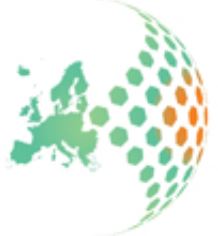 |
EuroNanoForum 2013 will take place 18-20 June 2013 at the Convention Centre Dublin in Ireland. more |
|
|
|
|
|
|
May 8, 2013 |
![News Photo]() |
A two-day joint workshop:“Health and Environmental Impact of nano-enabled products along the life cycle”, was organized by the coordinators of three European FP7 Projects: NANOPOLYTOX, NANOSUSTAIN and NANOFATE, on the 7th-8th of May 2013 in Barcelona (Spain). more |
|
|
|
|
|
|
April 24, 2013 |
![News Photo]() |
The First Annual Progress Meeting, General Assembly and Steering Committee of the SCAFFOLD project took place in Bilbao, Spain, from April 24 to April 25 2013. All project partners shared their results, assessed the progress of the project, and coordinated their actions for the following year. |
|
|
|
|
|

|
| |
Come to Scaffold results!
| |
| |
Our News: Subscribe
Our Outputs: guides, tools, background reports, training material...: click HERE
Our Results in a nutshell (5 p): Office version - Print version
Our Final newsletter, for a more detailed summary (18 p): download
Our Final conference with NanoMicex and SanoWork: agenda, presentations, summary of the panel discussion. Click HERE
| |
| | | |
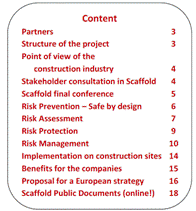
|
September 28, 2015 The Scaffold final newsletter summarizes the results of the projects. more
|
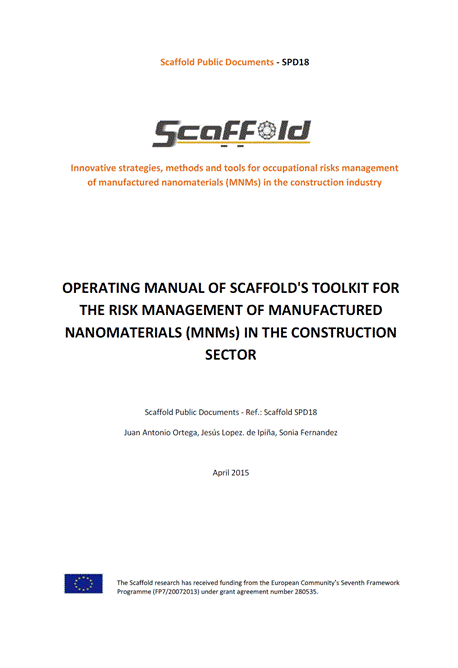
|
Scaffold Guides, Tools & Reports online !! July 15, 2015 Scaffold main outputs are now online, here!
|
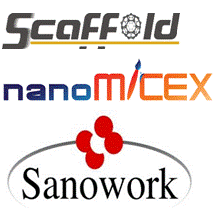
|
April 15, 2015 Scaffold- Nanomicex - SanoWork joint workshop: Operational occupational Risk Management Models and tools for MNMs in the industry. Find here the Presentations and conclusions. more
|
| | | |
| |
Manufactured nanomaterials and nanocomposites are being considered for various uses in the construction industry and related infrastructure industries, not only for enhancing material properties and functions but also in the context of energy conservation. Despite the current relatively high cost of nano-enabled products, their use in construction materials is likely to increase because of highly valuable properties imparted at relatively low additive ratios, rapid development of new applications and decreasing cost of base MNMs as they are produced in larger quantities.
Recent studies suggested that workers handling with nano-products mostly worked with cement or concrete products, coatings or insulation materials. Other product types, including road‐pavement products, flame retardant materials or textiles, were only indicated by some. However, a survey developed by FIEC and EFBWW (2009) showed that the majority of construction workers and their employers (~75%) are not aware that they work with nano-products.
Occupational exposure to these emerging risks may be accidentally or incidentally produced at different stages of the construction industry life cycle. Due to the novelty, these same nano-products might pose new health and safety risks to the worker on‐site, which scientists are only just starting to understand. Detailed information about the product composition and their possible nano-specific health and safety issues though, is generally lacking and the information available to the raw material manufacturer is often lost while stepping down the user chain. As a consequence, for the average construction company it will be very difficult to conduct a proper risk assessment and organize a safe workplace for its employees.
Despite the potential risks, the use of nano-products in the construction industry is a reality and can be expected to grow in the near future (Technology is always working ahead of risk). Consequently, there is a general uncertainty with respect to health and safety risks and how to properly manage them to protect workers and be in compliance with OHS legislation. This calls for a new approach for dealing with uncertainties, providing construction companies with new strategies, methods and tools to appropriately manage these emerging risks.
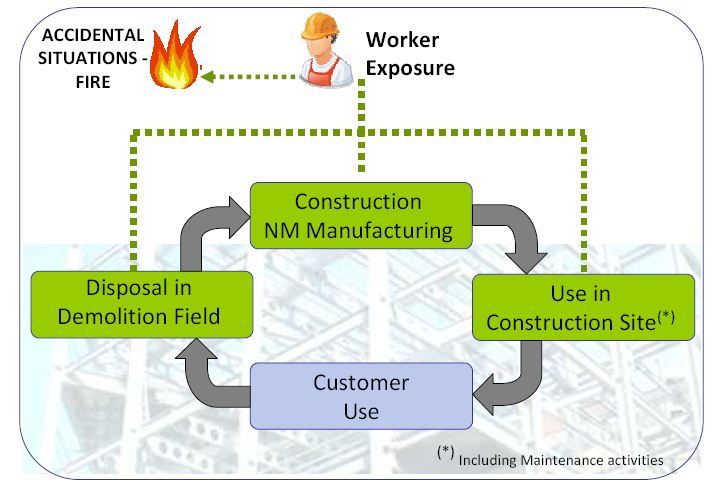

| |
| | | |
| | | |
| |
SCAFFOLD will collect , review and analyse relevant quantitative and qualitative information and data on current strategies, methods and tools for workers protection against MNMs (WP1), in order to identify needs and gaps for proper risk management. Four main topics will be analysed: Risk prevention (MNMs safe design, safe design of manufacturing processes, etc), Risk assessment (occupational exposure and toxicology, measurement equipment and procedures, exposure limit values, etc), Risk protection and control (filtration,PPEs, etc) and finally Risk management (safety management models, tools, implementation level, work procedures, “good practices”, risk communication, etc).
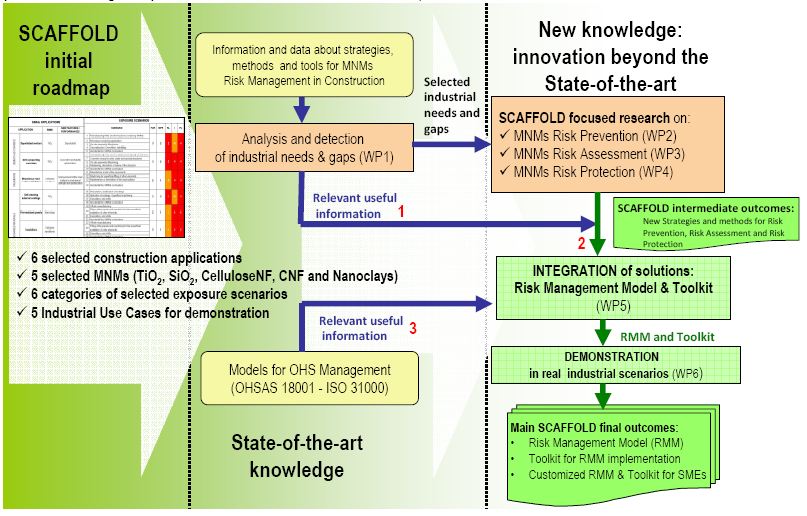
| |
| | | |
| | | |
| |
Coordinator: Tecnalia.
Contact person: Jesús M. López de Ipiña, coordinator. Parque Tecnológico de Alava, Leonardo Da Vinci, 11, E-01510 Miñano, Spain Tel: +34 (0) 946 430 850, SCAFFOLD@eu-vri.eu.
Start date: 1st June 2012.
End date: 30th May 2015.
Budget: 3.7 M€- EC contribution: 2.5 M.
Grant Agreement Nr: NMP4-SL- 2012-280535. | |
| | | |
|
|
|
|
|
|